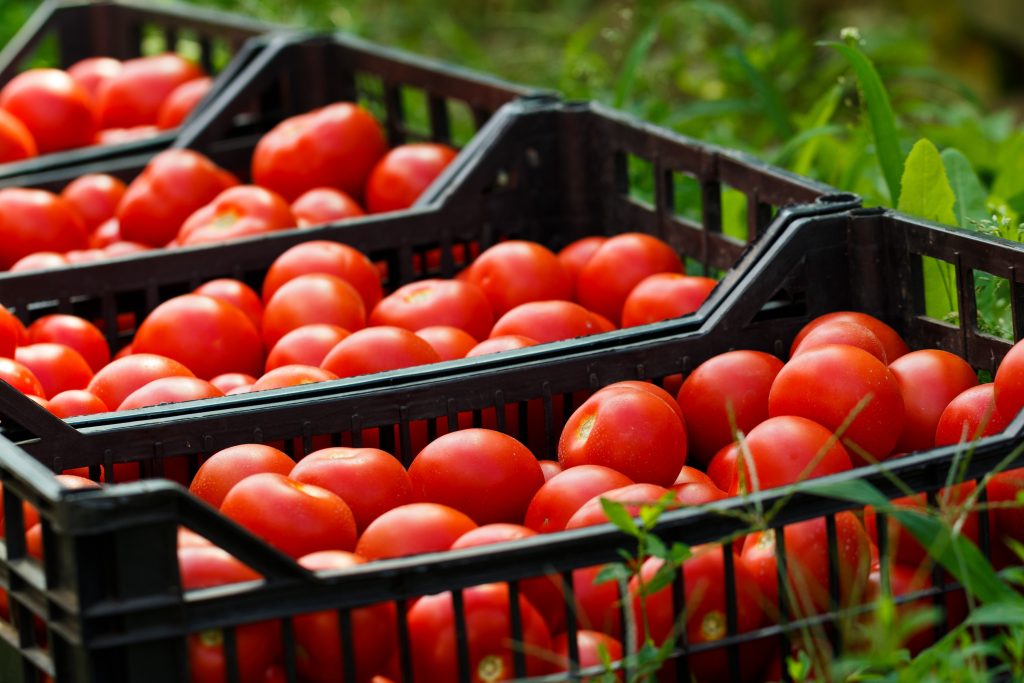
Though Mexican exports of tomatoes have not reached the ‘peak’ season, inspections appear to be running smoothly and efficiently, says Michael Schadler, executive vice president of the Florida Tomato Exchange.
The inspection provision, which was part of the Tomato Suspension Agreement established in September, 2019 between the U.S. Department of Commerce and Mexican tomato exporters, allows for the United States Department of Agriculture to inspect certain kinds of tomatoes being transported from Mexico to the United States. It started in early April but will be tested when higher volumes of tomatoes ramp up during the winter months.
“The heaviest times of the season as far as imports from Mexico are January, February and March. The inspections haven’t been tested with the biggest volumes of the season,” Schadler said. “We’re bringing in Mexican tomatoes year-round. There’s very significant volumes every week of the year, every month of the year. But in those three months, that’s really the peak for the big production out of Mexico. That will be more of a test. By the time it’s January, they will have had a good eight months of practice, I think it’ll be fine.”
Cause for Concern?
Schadler believes there should not be cause for concern that inspections of tomatoes could create a bottleneck of shipments, especially during those months when more of the crop will cross the border.
“Frankly, I don’t think it should be a worry for anyone. First of all, USDA (Agricultural Marketing Service) AMS, that’s what they do; they’re in the business of offering inspections services. They’ve ramped up employment and staff to the level they can handle the situation,” Schadler said. “I think people would have been a little nervous if their start had been Jan. 1 of 2020, right as the big volume was coming in. That would have been a little much.
“I don’t think there is any worry. If you hear about importing companies expressing concern, I personally don’t think that’s justified. But I can understand it if I was an importer, how it’s an adjustment that they have to make. As far as we understand it, the process has been going fairly smoothly. Both sides have been working together well.”
Purpose of Inspections
According to the International Trade Administration, the purpose of the Suspension Agreement inspections is to prevent low-quality and poor-condition tomatoes from entering the U.S. market and injuring the U.S. domestic tomato industry through price suppression or undercutting.
The tomatoes that are being inspected include Round tomatoes, Round meaning fresh tomatoes; Roma tomatoes, Roma meaning Roma or Plum fresh tomatoes; stem on tomatoes, stem meaning any type of fresh tomato, except specialty and tomatoes on the vine; and Grape tomatoes in bulk.
“It’s a quality grade inspection. It makes it so that if you’ve got tomatoes that grade below U.S. No. 2, you can’t bring them into the country. You either have to cull them there on the spot or you have to return the shipment back to Mexico,” Schadler said. “It’s really good for the overall market. It’s good for the downstream market because you’re getting higher quality, but it’s good for the trade as well because you get some of that rough quality out of the system and prices will be helped for everyone.”
Exempt Tomatoes
Those tomatoes that are exempt from inspections include tomatoes on the vine, meaning any type of fresh tomatoes, except specialty, in which there are two or more tomatoes, normally in a cluster, with the vine attached; specialty tomatoes, meaning Grape, Cherry, Heirloom, Cocktail fresh tomatoes or any other tomato varietal, other than Round and Roma tomatoes, with or without the stem; and Grape tomatoes in retail packages of 2 pounds or less.









